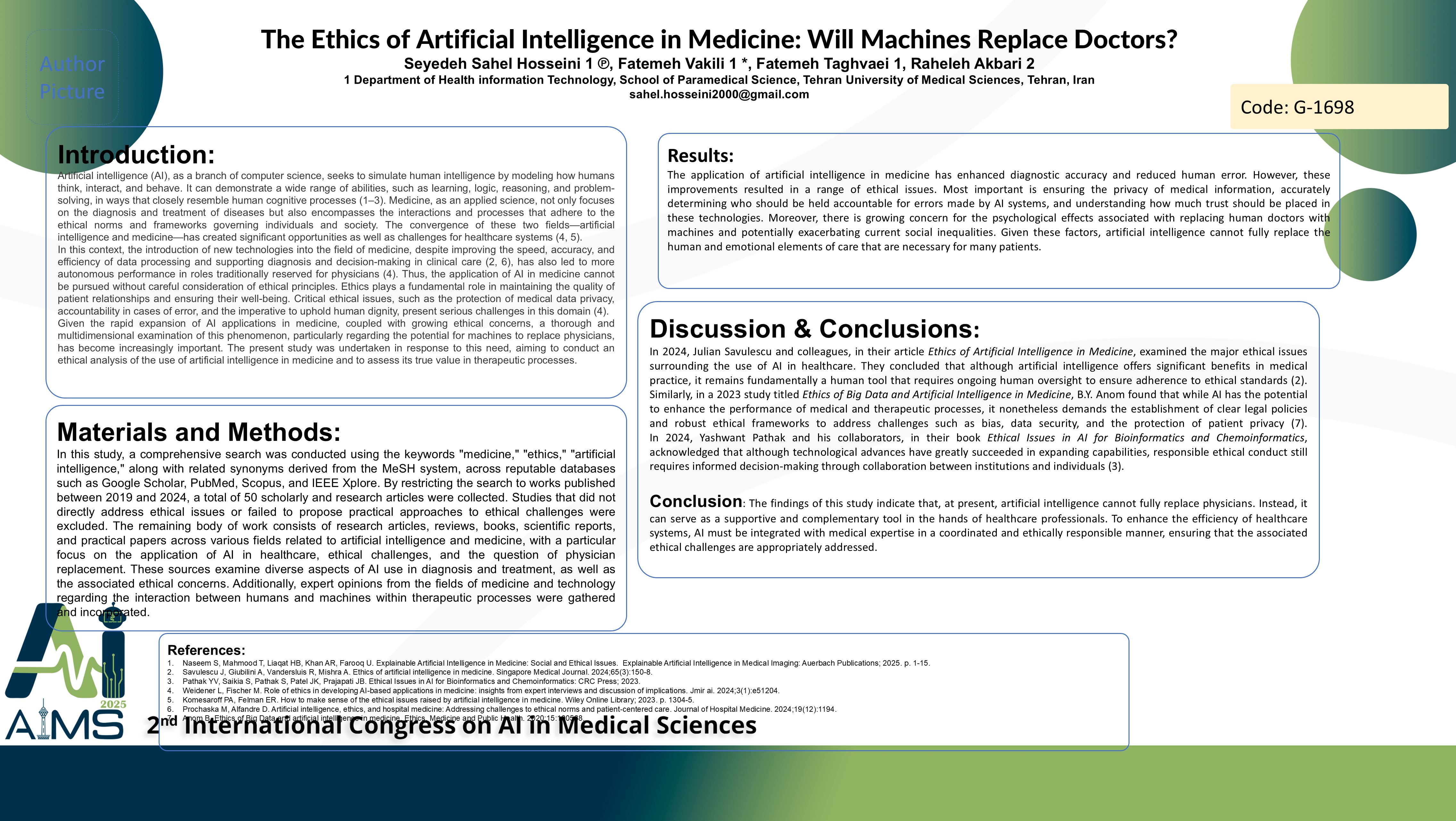اخلاق هوش مصنوعی در پزشکی ایا ماشینها جایگزین پزشکان می شوند ؟
کد: G-1698
نویسندگان: Syedeh Sahel Hoseini ℗, Fatemeh Vakili *, Fatemeh Taghvaii, Raheleh Abari
زمان بندی: زمان بندی نشده!
برچسب: سیاست گذاری، قانون گذاری و مدیریت سلامت در حوزه هوش مصنوعی
دانلود: دانلود پوستر
خلاصه مقاله:
خلاصه مقاله
Background and aims: With significant advancements in artificial intelligence (AI), many fields, including medicine, have been greatly impacted. The use of AI algorithms in disease diagnosis, personalized treatments, and predicting treatment outcomes has created enormous potential for improving the efficiency of healthcare systems. In this context, the question arises: Can AI replace doctors, or will it act as a complementary tool alongside them? Method:In this study, 50 scholarly and research articles were collected from reputable databases such as Google Scholar, PubMed, Scopus, and IEEE Xplore. These articles include research papers, reviews, scientific reports, and practical articles in various fields of AI and medicine, focusing on the applications of AI in healthcare, ethical challenges, and issues related to the replacement of doctors. The articles examine different aspects of AI usage in diagnosis and treatment, as well as the ethical concerns associated with it. In addition, the opinions of medical and technological experts regarding the interaction between humans and machines in the treatment process were also gathered. Results:The use of AI in medicine has led to increased diagnostic accuracy and reduced human errors. However, these advancements come with various ethical challenges. Among these challenges are concerns regarding the protection of medical data privacy, accountability in case of errors by AI systems, and trust in these systems. Additionally, there are concerns about the psychological effects of replacing doctors with machines and the potential for creating social divides. Moreover, it seems that AI cannot fully replace the human and emotional aspects of care, which are essential for many patients. Conclusion:The findings of this study suggest that AI cannot fully replace doctors at present. Instead, it can serve as a supportive and complementary tool in the hands of healthcare professionals. To achieve greater efficiency in healthcare systems, AI should be integrated with medical experts in a coordinated and ethical manner to avoid risks and address the ethical challenges involved.
کلمات کلیدی
Artificial Intelligence, Medicine, Ethics, Physician Replacement
